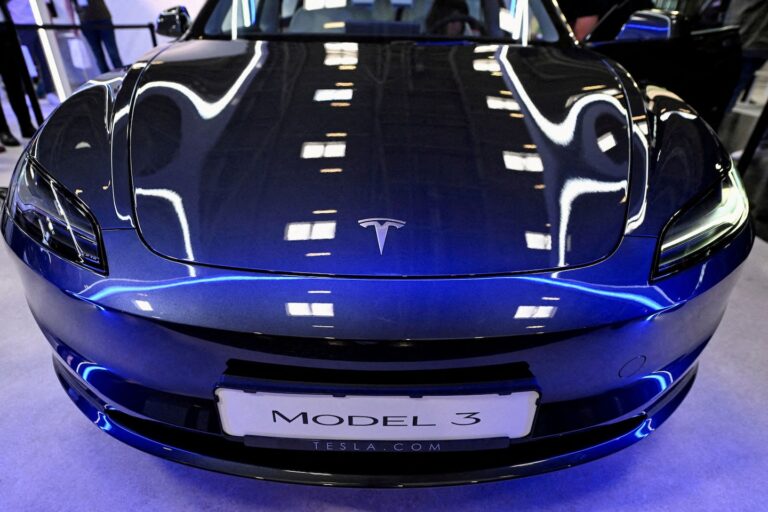Musk’s comments came after Tesla reported disappointing results on Tuesday, with quarterly profits down 45% from a year ago. To ease investor concerns, Musk doubled down on big promises for a driverless future, saying the company would unveil plans for fully self-driving robotaxis in October.
But those plans have continued to be delayed and details have been scarce, leaving analysts and investors confused about the company’s prospects. “Tesla investors need results, perhaps more than ever in the company’s recent history,” said Thomas Monteiro, senior analyst at Investing.com. “Results will have to come soon.”
Tesla reported that its second-quarter net income fell 45% to $1.48 billion, while sales rose 2% to $25.5 billion. Executives were confident that sales would bounce back from last quarter, and blamed the decline on a confluence of factors, including a global slowdown in EV sales and production interruptions. Tesla shares fell about 3% in after-hours trading.
Get caught up in
Stories to keep you up to date
Musk had originally said the Cybercab would be unveiled in August, but delaying the launch by a few months “allowed us to refine the robotaxi and add a few other things for the product launch.”
Musk said he expects the first fully self-driving cars to arrive “probably by the end of this year” and that he would be “shocked if we don’t get it next year,” but added that “previous predictions have been too optimistic.”
According to the National Highway Traffic Safety Administration, companies that want to operate non-compliant vehicles, such as robotaxis, which have no steering wheel or accelerator pedal, must apply for an exemption from the agency before operating them on public roads. As of last week, Tesla had not applied for an exemption for its robotaxis in the US, the NHTSA said in an email to The Washington Post.
Gene Munster, an analyst at Deepwater Asset Management, said Tesla’s thin profit margins have investors eager for the company to announce “the next thing,” but he remains optimistic about the company’s future given Musk’s bold bet on self-driving cars.
“No one else is trying to solve these complex problems like Tesla is. The company is committed to doing so,” he said.
Musk’s endorsement of Trump last week put the spotlight on what the Tesla CEO stands to gain and lose by serving a second term. The former president said he “loves” Musk but has vowed to “crush” the industry by gutting pro-EV regulations if elected. Musk, who now plays a major role in Republican politics, said removing EV incentives would be “devastating for our competitors” and “a small blow to Tesla.”
Meanwhile, after Tuesday’s earnings report, Musk launched a poll on social media site X asking whether Tesla should invest $5 billion in his AI startup, xAI, which Musk came under fire earlier this year after CNBC reported he had diverted chips earmarked for Tesla to the AI startup.
Investors are already questioning Musk’s commitment to Tesla, after he tweeted in January that he was “uncomfortable” growing the company into a leader in AI and robotics without controlling about 25% of the company’s voting power.
Musk said the investigation was a “wait-and-see” effort and that any such move would require board approval and a shareholder vote.Still, Tuesday night’s investigation and his endorsement of Trump are unlikely to allay concerns that the billionaire is putting his own interests ahead of Tesla’s.
Jessica Caldwell, head of insights at Edmunds, an auto industry ratings and research firm, said Musk’s public support for the former president “could alienate Democratic consumers who are more likely to buy EVs.”
“Tesla’s road ahead is already fraught with obstacles due to increasing global competition and an aging product lineup,” she said. “Giving potential EV buyers a political reason not to buy a Tesla is probably the last thing the company needs at this point.”
Faiz Siddiqui contributed to this report.

